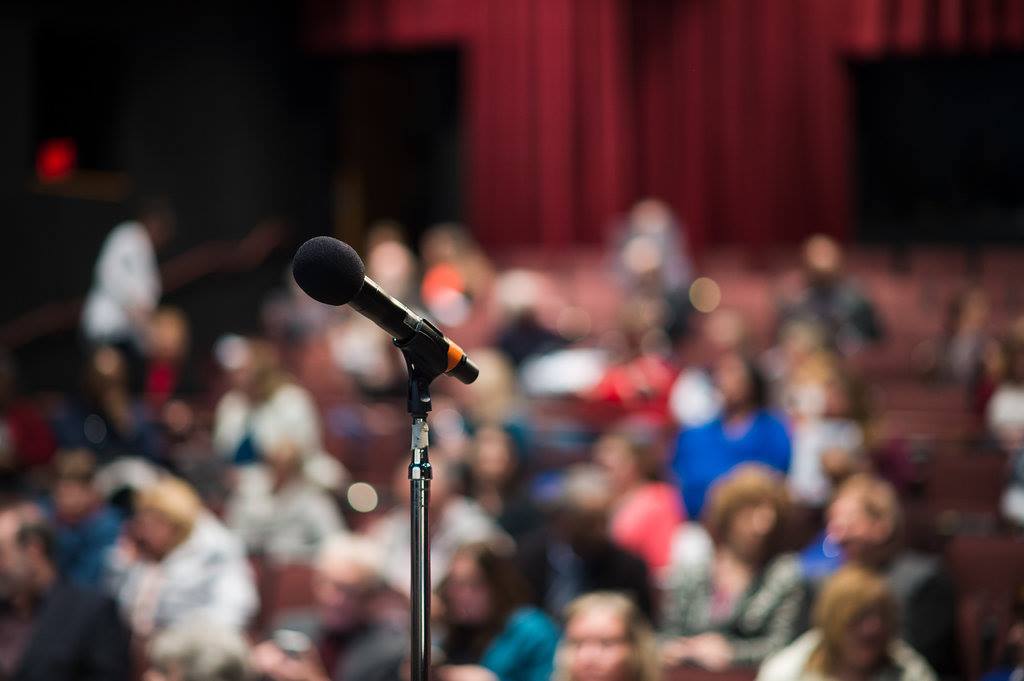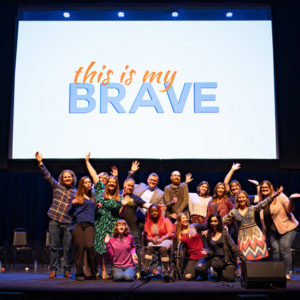Black People’s Mental Health Matters
As I enter into the “midlife” stage in the Human Life Cycle, I am grateful for new choices I’ve made in seeking out assistance and discovering resources like “This Is My Brave,” to cope with my mental health.
I look back at my adolescent and early adulthood years and remember the struggles I experienced with what was going on with me and how to address it. I was not mindful of the therapy or support groups out there that could guide me along my journey dealing with anxiety and depression. I found different ways, both good and bad, in dealing with my issues. The bad would entail me being so fearful of what others thought, that I would try to mask my symptoms by self-medicating on drugs and alcohol. I eventually realized that this method could never provide me with a long-term relief, but would only intensify my illness.
In the end, it was music – in particular hip hop – that stopped me so many times from spiraling out of control. It was a relief to listen to rappers that spoke about their trauma, depression and hurt. As a young Black child, I no longer felt alone but rather connected to these prominent individuals that I grew up on and idolized. I was later able to transition from a fan to an artist myself which allowed me to compose songs that were a great catharsis for releasing my pain and sadness.
Through the years, I realized that the presence of mental health and mental illness has always been discussed and talked about in hip-hop. Hip-hop is an art, it is therapeutic, and for artists, our music is how we discuss how we’re are battling with our mental health. Even as of recent, with everything going on in the world, the need to be a creative for me is so essential now more than ever. We are all living in an unprecedented time where we are experiencing several stressors that we have either never endured in our lifetime with the example being the pandemic, or stressors that have remained unresolved and that have plagued us for centuries with the continued systemic oppression, police brutality and racism that Black Americans have endured. As a Black man, my hope is that others understand and acknowledge that these issues are traumatic to a group that deserves the same human rights as the next person. Not only do “Black Lives Matter”, but “Black People’s Mental Health Matters” as well.
Despite progress in recent years, there remains a significant stigma associated with acknowledging mental health concerns within the Black community. Whenever I found myself making attempts to confide in someone about what I was experiencing with anxiety and depression, I was usually meet with responses that immediately made me regret making these desperate cries for help. I would get reactions that ranged from judgmental stares to others not truly knowing how to offer me the emotional support I needed. The worst interactions involved people who I considered loved ones, totally disregarding my issues and minimizing my illness as just something in my head. Those reactions can be unsettling when people choose to categorize someone with mental health issue as being an unstable person or weak-minded instead of realizing that it’s an essential part of our wellbeing that needs to be cared for, and it’s just as important as working out, eating healthy and sleeping well. When someone has a physical illness like cancer, diabetes or even a broken leg, we rally around them and offer support. The same support should be regarded for those of are dealing with a mental illness, like depression, post-traumatic stress disorder, and schizophrenia.
My hope for the Black community is to continue improving cultural awareness on mental health issues that is hurting our community, while also fighting against the stigma. Like artists in the hip hop community that inspired me, my hope is that more Black creators and influencers will come out to support the importance of mental wellness. I offer words of encouragement to families and friends that have loved ones that are experiencing mental health concerns to reach out and listen. While having the right words to say are important, your loved ones also need to know that someone is there to listen without judgement. I wish for more funding in the health care and mental health workforce so that the needed information and resources can provided on a consistent basis to these communities.
And last but not least, I just pray that we can love and care for one another. This is not the time to be divided, 2020 has been rough on all of us.

About the Author:
Patric Johnson, who goes by Lyrics Devine, is a Hip-Hop Artist, Mental Health Advocate, and a Human Resource Professional who resides in Virginia Beach. Besides Patric’s love for recording music, his interests include volunteering in his community and spending time with his family. His musical influences include, Kendrick Lamar, Nina Simone, Frank Sinatra, Billy Holiday and Kurt Cobain. Patric will be performing an original song in our Hampton Roads, Virginia show this fall.

